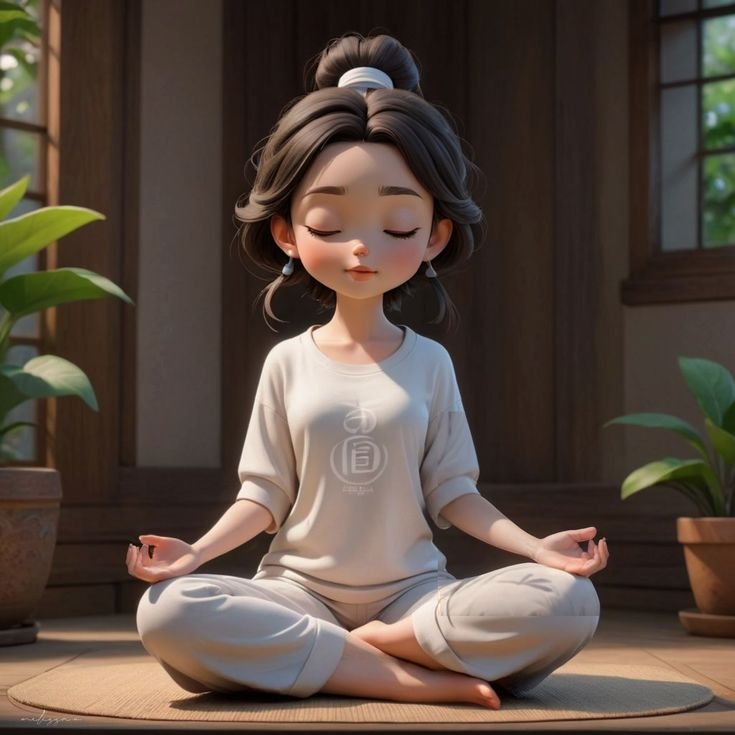In today’s fast-moving world, stress, anxiety, and constant pressure can make life overwhelming. That’s why learning how to find your inner peace is more important than ever. Inner peace is not about escaping life’s problems—it’s about building strength, calmness, and clarity within yourself. The constant noise, responsibilities, and worries about the future can easily overwhelm us. This is why finding inner peace has become more important than ever. Inner peace does not mean living without problems; instead, it means learning how to stay calm, balanced, and positive even when life feels chaotic.
Below, we will explore what inner peace truly means, why it matters, and how you can achieve it in your daily life.
What Does Inner Peace Really Mean?
Inner peace is a state of mind where you feel calm, content, and grounded. It is not about avoiding stress or running away from challenges, but about managing them with patience and clarity. Imagine standing in the middle of a storm but still feeling steady inside—this is what inner peace looks like.
True peace comes from within, not from external things like money, success, or material possessions. While these can make life comfortable, they cannot guarantee long-term happiness. Inner peace grows when you build harmony between your mind, body, and soul.
Why Is Inner Peace Important?
- Better Mental Health – A peaceful mind reduces anxiety, stress, and overthinking.
- Stronger Relationships – When you are calm inside, you can communicate with love and patience.
- Clarity in Decisions – Peaceful thinking helps you see situations clearly instead of reacting with anger or fear.
- Happiness from Within – Instead of depending on external situations, your joy comes from a stable inner self.
- Healthy Body – A stress-free mind improves sleep, lowers blood pressure, and boosts immunity.
Steps to Find Your Inner Peace
1. Practice Mindfulness
Mindfulness means being fully present in the current moment without worrying about the past or future. Take a few minutes every day to observe your breath, listen to your surroundings, or notice your thoughts without judgment. This simple practice helps calm your racing mind.
2. Let Go of What You Cannot Control
Many times, stress comes from trying to control situations or people. Once you accept that not everything is in your hands, life feels lighter. Focus only on what you can change, and let go of unnecessary burdens.
3. Simplify Your Life
https://thedailyselfcare.com/Clutter in your room or too many commitments can disturb your inner balance. Declutter your space, say no to unnecessary tasks, and spend time on things that truly matter. A simple lifestyle creates space for peace.
4. Spend Time in Nature
Nature has a healing power that refreshes your soul. Walk in the park, sit under a tree, or watch the sunrise. These small moments of connection with nature bring stillness and calmness.
5. Practice Gratitude
Instead of focusing on what’s missing, remind yourself of what you already have. Write down three things you are grateful for every day. Gratitude shifts your perspective and fills your heart with positivity.
6. Meditation and Deep Breathing
Meditation is one of the most powerful tools to achieve inner peace. Even 5–10 minutes of meditation can bring clarity and calmness. Combine it with deep breathing exercises to release tension and relax your body.
7. Build Healthy Boundaries
Protecting your energy is important. Learn to say no when needed, avoid toxic relationships, and surround yourself with people who uplift you. Boundaries are not selfish—they are necessary for peace of mind.
8. Practice Forgiveness
Holding grudges only keeps your heart heavy. Forgive yourself for past mistakes and forgive others for their wrongs—not for them, but for your own peace. Letting go frees your spirit.
9. Do What Brings Joy
Engage in hobbies or activities that make you happy—reading, painting, cooking, playing music, or simply spending time with loved ones. Joyful moments nourish your soul and add balance to life.
10. Stay Connected Spiritually
For many, connecting with faith, prayer, or spiritual practices brings a deep sense of comfort and peace. Spirituality reminds us that we are not alone and that life has a bigger purpose.
Final Thoughts
Finding inner peace is not a one-time achievement; it is a lifelong journey. Some days will feel peaceful, while others may be challenging, and that’s completely normal. What matters is your commitment to return to calmness again and again.
When you focus on mindfulness, gratitude, and self-care, you create a life that is not controlled by stress but guided by balance and clarity. Remember, peace is not found outside—it grows within you.
Take small steps daily, and slowly, you will notice that the noise of the world no longer shakes you. Instead, you will carry a quiet strength inside—a strength called inner peace.




